Upcoming Events
Trauma, Illness & Healing in a Toxic Culture and The Hungry Ghost: A Biopsychosocial Perspective on Addiction, from Heroin to Workaholism (Online)
Please note: this is a private event.
Based on The Myth of Normal: Trauma, Illness and Healing in a Toxic Culture
Half of North American adults suffer from chronic illness – a fact Western medicine views largely
in terms of individual predispositions and habits.
Western medicine imposes two separations, neither tenable scientifically. First, it separates
mind from the body, largely assuming that most chronic illnesses have nothing to do with
people’s emotional and psychological experiences. And yet, a large and irrefutable body of
research has clearly shown that physiologic and behavioural functioning of human beings can
be understood only if we integrate our body functions with those of the mind: functions such as
awareness, emotions, our interpretations of and responses to events, and our relationships with
other people. Second, Western practice views people’s health as separate from the social
environment, ignoring social determinants of health such as class, gender, economic status,
and race. Such factors, in reality, are more important influences on health and longevity than
individual predispositions and personal factors such as genes, cholesterol levels, blood
pressure and so on.
This talk shows how a society dedicated to material pursuits rather than genuine human needs
and spiritual values stresses its members, undermines healthy child development and dooms
many to chronic illness, from diabetes to heart disease, from autoimmune conditions to cancer.
Based on the book In the Realm of Hungry Ghosts: Close Encounters with Addiction
For twelve years Dr. Maté was the staff physician at a clinic for drug-addicted people in
Vancouver’s Downtown Eastside, where he worked with patients challenged by hard-core drug
addiction, mental illness and HIV, including at Vancouver Supervised Injection Site. In his most
recent bestselling book In the Realm of Hungry Ghosts, he shows that their addictions do not
represent a discrete set of medical disorders; rather, they merely reflect the extreme end of a
continuum of addiction, mostly hidden, that runs throughout our society. In The Realm Of
Hungry Ghosts draws on cutting-edge science to illuminate where and how addictions originate
and what they have in common.
Contrary to what is often claimed, the source of addictions is not to be found in genes, but in
the early childhood environment where the neurobiology of the brain’s reward pathways
develops and where the emotional patterns that lead to addiction are wired into the
unconscious. Stress, both then and later in life, creates the predisposition for addictions,
whether to drugs, alcohol, nicotine, or to behavioural addictions such as shopping or sex.
Helping the addicted individual requires that we appreciate the function of the addiction in his
or her life. More than a disease, the addiction is a response to a distressing life history and life
situation. Once we recognize the roots of addiction and the lack it strives (in vain) to fill, we can
develop a compassionate approach toward the addict, one that stands the best chance of
restoring him or her to wholeness and health.
To be confirmed
Online



